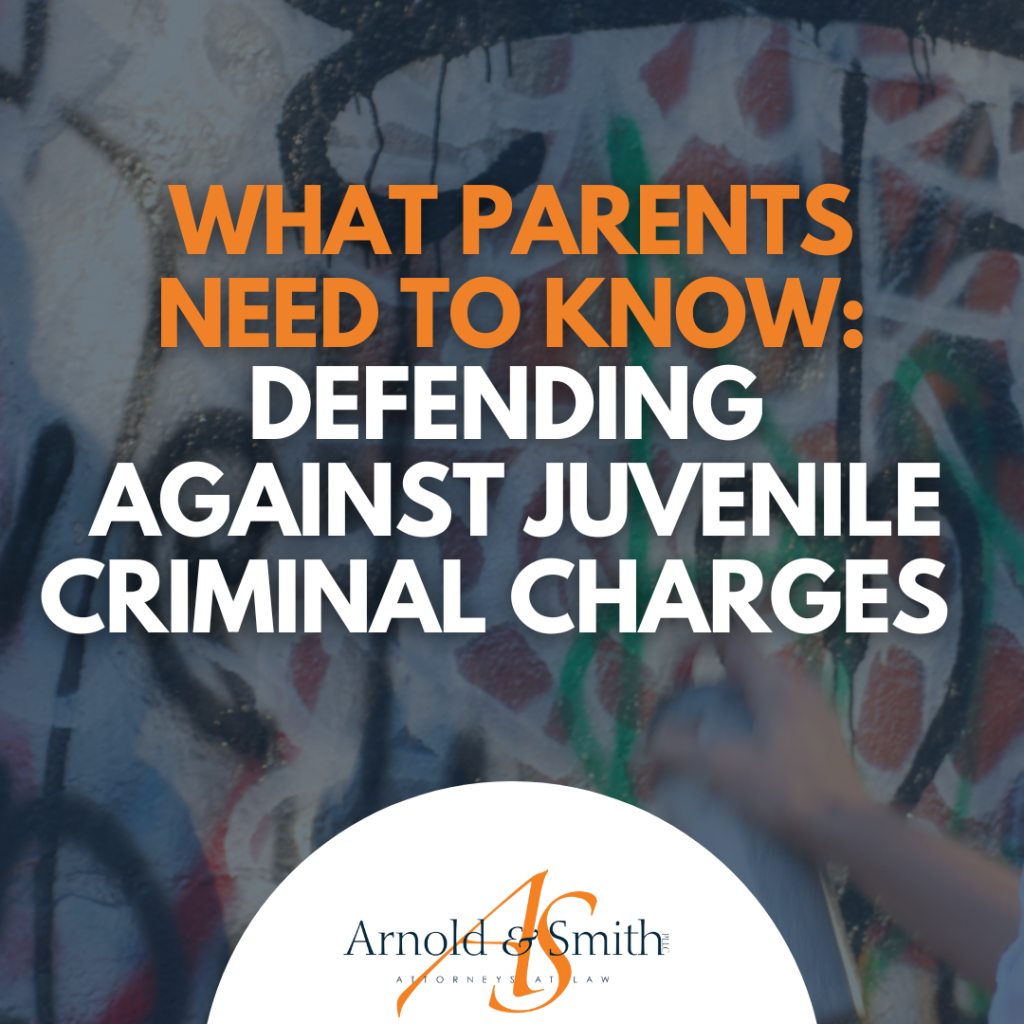 Defending Against Juvenile Criminal Charges: What Parents Need to Know
Defending Against Juvenile Criminal Charges: What Parents Need to Know
One of the most terrifying things to face as a parent is a phone call from the police stating that your child is in trouble. Parents want to do everything possible to help their children through this difficult experience and keep them from having severe penalties that could negatively impact the rest of their lives. When your child has been detained or is charged with a crime, parents need to know the options available and how to best handle the situation. Often, the best way to proceed is with guidance from a knowledgeable criminal defense attorney.
Juvenile Crimes
A juvenile is generally defined as a person under the age of 18. However, there are some crimes that may qualify a juvenile to be prosecuted as an adult. The juvenile system has a different framework than the adult criminal system. The juvenile system is designed to rehabilitate children rather than punish them. There are two main kinds of juvenile offenses including undisciplined offenses and delinquent offenses.
Undisciplined offenses – These are misbehaviors that are not necessarily criminal in nature. Truancy and running away from home are two examples of undisciplined offenses.
Delinquent offenses – Criminal behavior that would be classified as criminal if the offense was committed by an adult. For example, shoplifting is a common delinquent offense.
Both types of behaviors are treated through various methods in the juvenile system. Juveniles face adjudication rather than a trial, as occurs in matters charged as adults.
Juvenile Reinvestment Act
The Juvenile Justice Reinvestment Act (JJRA) ais lso called the Raise the Age law. Enacted in 2017, the JJRA specifically addresses how to handle youths who are 16 or 17 years of age. Previously, 16 and 17-year-old juveniles were most often charged as adults. The Juvenile Reinvestment Act assures that 16 and 17-year-olds will go through the juvenile system for most non-violent offenses.
There are two main exceptions in which a 16 or 17-year-old will be charged as an adult. A juvenile who is charged with a motor vehicle offense will be tried as an adult. Also, when a juvenile is charged with a felony, he or she will be tried in adult court.

Adjudication in Juvenile Cases
Adult criminal cases are resolved through trials. In juvenile delinquency cases, the process is called adjudication. Law enforcement files a petition with the court, which starts the process. The court will inform the juvenile and their guardian of the date and time of the first court appearance. In some cases, the court will order the juvenile detained at the first appearance. If the juvenile is detained, a detention hearing will be held within 5 days.
The adjudicatory hearing is like a trial in an adult court, except the judge decides the case. There is no jury in an adjudicatory hearing. If the court finds that the juvenile is either delinquent or undisciplined, there will be a dispositional hearing set. At the dispositional hearing, the court will set the rehabilitative steps to be taken. The judge will try to provide a path that will help rehabilitate the juvenile.
An experienced attorney will assist with the defense of juvenile crimes. It is essential to try to vigorously defend charges and protect the rights of your child. If your child is facing charges, contact us at Arnold & Smith, PLLC, at (704) 370-2828 for a consultation.
You cannot reason with the unreasonable. The criminal defense attorneys at Arnold & Smith, PLLC make it their mission to zealously defend their clients on a wide range of criminal matters at both the state and federal levels. These matters may include any charge from traffic offenses; DWI/DUI; drug charges (from simple possession to possession with intent to distribute and trafficking); gun permit denials; weapons offenses; and property crimes (larceny, breaking and entering, robbery, fraud, embezzlement, white collar offenses); to sexually related offenses (indecent exposure; sexual assault, crimes against nature, removal from sex offender registry); and violent crimes (domestic violence; assault; manslaughter; homicide, murder). Other legal issues that Arnold & Smith, PLLC criminal clients may be facing include restraining orders, restraining order and probation violations, expungements; appeals; and immigration issues related to criminal charges. Our criminal defense attorneys are passionate about ensuring that individuals empower themselves by being informed about their constitutional rights and stand at the ready to fight in the defense of those facing criminal charges.
Source:
Image Credit:
See Our Related Video from our YouTube channel:
Arnold & Smith, PLLC – YouTube
See Our Related Blog Posts:
 Charlotte Criminal Lawyer Blog
Charlotte Criminal Lawyer Blog


